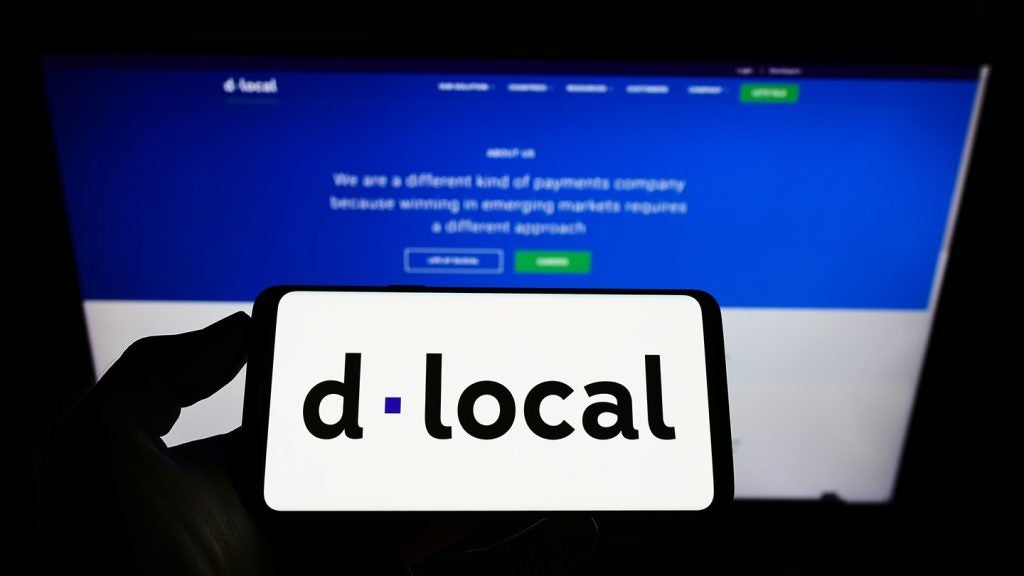their own this year, with strong performances in emerging markets
helping to offset some dreadful results in the US. Standard
Chartered and UniCredit, who avoided the trouble in the US, shared
some of the secrets of their cards-issuing strategies with
William Cain.
that Barclaycard, Citigroup, GE Money and HSBC were among the few
successful multinational, cross-border players in the cards
industry. Standard Chartered might also have featured, though its
presence in Europe is nowhere near as extensive as its cards
franchise in Asia.
dominate a global marketplace. Increasingly though, scale should
play a smaller part in breaking down national boundaries,
particularly in Europe. The extension of the European Union
eastwards to the emerging Central and Eastern European markets
(CEE) and Single Euro Payments Area (SEPA) implementation has made
it easier to access new countries
marketplace smaller and more accessible, and have had some telling
impacts on the dynamics of the industry. Big players, particularly
GE Money and Citi, have suffered and reined back their operations.
Others, like HSBC, BNP Paribas and Barclaycard, have rethought
their businesses, reorganised and pressed ahead.
been catapulted towards the top bracket of card issuers. UniCredit,
Santander, Raiffeisen and Erste have become bigger players in
Europe and CEE and all have credit cards as part of their consumer
finance package. They are big, regional players, some of which are
rapidly becoming global in scope.
specialist at consultancy AT Kearney, said: “Under the pan-European
licence of Visa and MasterCard, European issuers can issue
cross-border without many theoretical barriers. There are of course
operational barriers and market challenges that are making
cross-border issuing challenging at a business case level.
the limited use of credit cards as a source of revolving credit,
the current economic climate restricting access to capital to
banks, and consumers curbing their spending. In addition, the
increasing risk of defaults from consumer segments typically on
revolving credit is making cross-border issuing a bit more
challenging.”
Strategies for success
While the old guard have suffered, a new crop of issuers have
emerged, particularly in CEE where cross-border activity has been
increasing. UniCredit has been one of the biggest players in this
space. It has a 40 percent stake in Turkey’s largest credit card
issuer,
Yapi Kredi, and a presence in a further 19 markets. They
include untapped countries like Azerbaijan, Bosnia and Herzegovina,
Kazakhstan, Latvia, Lithuania and Tajikistan.
market at UniCredit, told CI a cross-border strategy was a key part
of the bank’s operations. But he said obtaining a cross-border
licence, which is offered by Visa and MasterCard, was not a current
priority because the bank can operate under different licenses in
countries where it has a presence. He said licences currently only
made sense for issuers that wanted to issue in a market where they
have no or limited physical operations.
 Amisano said:
Amisano said:
“The cross-border business model is important for UniCredit. The
licence is just one of the components. What is important is to have
as much as possible a unique platform and infrastructure where you
manage the business where you have the same approach. The licence
is one of the approaches, and we have an agenda to harmonise and
rationalise the licences we have, because it is cost saving and it
contributes to the harmonisation of operations. But that is
something for the future.”
issuing is to do it as part of a wider product offering. Because of
limited data on consumer behaviour, it helps issuers to build
relationships with consumers before offering credit cards,
particularly in markets which are less developed and
underpenetrated.
are very appreciated by clients,” Amisano continued. “First, in
these markets credit cards are still a status symbol. If you are
eligible for a credit card it means you are financially
trustworthy, and it is more than just a payment device like in the
developed markets of Italy or the rest of the continental European
market. To have a gold card in Poland or Bulgaria makes a
difference. People are excited to get the card and the first step
to doing that is by offering a debit card, then moving to a simple
credit card.”
Chartered in Asia, which have entered markets with a single product
push in credit cards. But Michael Wiegand, the bank’s head of
consumer strategy, told CI it was a method which worked best in
severely underdeveloped markets where the bank only had a handful
of other competitors.
approach in some parts of Asia and even in the most eastern parts
of Europe. Ex-Soviet countries like Georgia have only recently had
genuine credit card propositions introduced, and there are numerous
markets in Asia where the market is similarly underpenetrated. But
even though Standard Chartered used credit cards to initially enter
a number of its markets, its focus now is offering a more diverse
product range.
sophisticated, there is a wider range of products available. We are
often the leader in bringing a full range of products. It is easy
in a market where there is only one credit card to go out and flog
that credit card.
you have to engage with the customer about what their needs are and
pick the best product for those needs. It reflects the evolution of
the markets as well as the evolution of Standard Chartered.”
entering new markets, and can be used to build relationships with
clients. In Standard Chartered’s case, this has been based around
building wealth management and mass affluent retail banking
services. The key issue seems to be the brand and having an
established relationship with the client.
in order to apply for the card while on the opposite side the
issuer needs to have good knowledge about the potential cardholder
applying to the card,” Burelli added. “In many countries there are
credit bureaus in operation but the scoring of applicants can be
even more reliable where there are existing relationships based on
other products.”
The old guard
In difficult economic times, issuing cross-border has proved a
saving grace for some of the top banks. HSBC, present in 85
markets, is one example. The bank took a huge hit because of its
exposure to the US subprime crisis and its US cards business also
suffered. The bank’s personal financial services (PFS) unit in the
US, which includes a range of consumer finance products, made a
loss in 2007 of $1.55 billion, from a profit of $3.39 billion the
year before. Its global PFS franchise dropped 37 percent on the
year, but it would have been so much worse had the bank not posted
strong gains in its Asian and Middle Eastern markets.
How well do you really know your competitors?
Access the most comprehensive Company Profiles on the market, powered by GlobalData. Save hours of research. Gain competitive edge.

Thank you!
Your download email will arrive shortly
Not ready to buy yet? Download a free sample
We are confident about the unique quality of our Company Profiles. However, we want you to make the most beneficial decision for your business, so we offer a free sample that you can download by submitting the below form
By GlobalDataof a re-engineering phase under recently-appointed CEO Vikram
Pandit, which has included selling off some of its European
consumer finance operations, most notably in Germany. But it looks
set to retain a focus on its cards businesses elsewhere.
economic and financial climate, the cards franchise has stood up to
the problems more robustly than the bank’s retail and consumer
finance operations.
in the opening quarter of the year, while net income for the
business declined 34 percent, generating a profit of $595 million
in the opening quarter. The bank’s consumer lending franchise
plunged into a $476 million loss after a profit of $359 million the
previous year in the same period.
cards business, which registered strong growth for the same period.
Card revenues were up 76 percent, and profits jumped 81
percent.
GE Money business, which was affected by the difficult economic
environment in the US. The conglomerate’s assessment of the
financial services industry was so bleak that its CEO Jeff Immelt
indicated he would offload part of the franchise.
“partner or exit” its private-label cards business, which makes up
part of its operations in the UK. It also sold a £1 billion ($1.97
billion) chunk of its consumer finance business in Europe to
Santander in exchange for the commercial banking operations of
Italian bank Antonveneta. Since then, the situation has
deteriorated further and there could be more woes to come for GE
when it relays its half-yearly results on July 11.
19 percent in GE Money’s profit, from $1.2 billion to $995 million.
There was a 15 percent improvement in the profit figure of its
‘non-Americas’ business but a 50 percent decline of its operations
within in the Americas.
Prepaid issuing cross-border
Smaller issuers and monolines have not made it into other markets
as easily as their larger counterparts. The main reason is because
they operate in niche areas in their home markets. Moving
cross-border requires a knowledge of cardholder usage in a country
with different credit dynamics.
provide local language support and literature from their own
market. The peculiarities of individual credit card markets means
there has to be a compelling business case to move cross-border for
smaller issuers.
 The playing field
The playing field
between the large multinational issuers and acquirers and smaller
national players has been levelled to an extent by the rise of big
processors like First Data. Their cross-border potential makes it
more realistic for smaller issuers to enter new markets. The
development of new distribution channels has also helped. Credit
card businesses can use online bill pay solutions, reducing the
need for high levels of local customer support.
But although the global playing field is being levelled, and theory
suggests cross-border issuing should be a question of ambition
rather than size, the reality appears to be different.
One area where there has been scope for smaller issuers to issue
cross-border has been in the prepaid space, which Visa Europe
identified as one of the main current trends. Visa said there has
been an increase in businesses targeting nationals who have moved
cross-border for work opportunities.
Also in prepaid, there has been a developing focus on BIN
sponsorship, especially in the UK, where Newcastle Building Society
has had some success. It acts as the issuing bank to over 60
prepaid and debit card programmes through the MasterCard
network.
Non-bank organisations can obtain an e-money license in the UK,
accessing a Maestro BIN under a BIN sponsorship programme like the
one offered by Newcastle, and issue prepaid cards in a countries in
which otherwise a banking license would be required. The practise
is permitted with prepaid and debit cards but not when the
provision of credit is involved.







